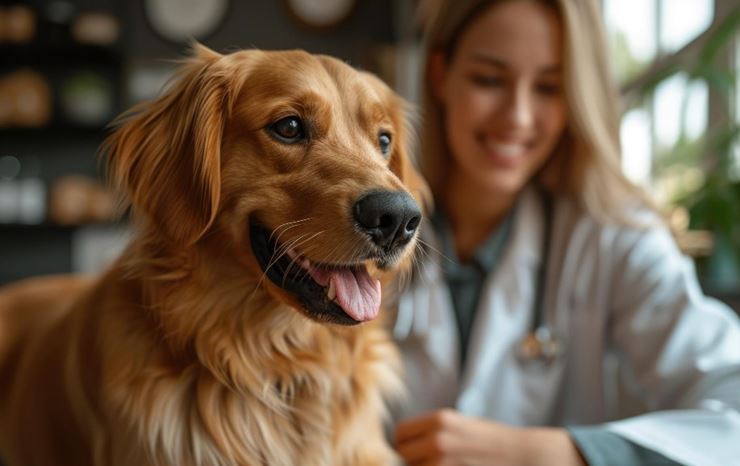
Vet Visits Made Easy: Exceptional Care for Dogs
Taking care of our furry friends involves more than just feeding and playing with them. Ensuring they receive regular veterinary care is crucial to their overall well-being. Finding the right veterinary clinic can make a world of difference for both pets and their owners. This guide aims to help pet owners understand the importance of choosing the right vet, what to look for in a clinic, and how to make vet visits stress-free for their beloved dogs.
Why Choosing the Right Vet Matters
The relationship between a pet and their vet is vital. A skilled and compassionate veterinarian can detect health issues early, provide effective treatments, and offer preventive care advice. This ensures your pet leads a healthy, happy life. Furthermore, a good vet can ease an owner's worries, providing peace of mind that their furry friend is in capable hands.
What to Look for in a Veterinary Clinic
Selecting the right veterinarian or clinic involves more than proximity to your home. Look for clinics with experienced staff. Choose a clinic with veterinarians and technicians who have extensive experience and continuous education in animal health. Experienced staff can quickly diagnose and treat various conditions, ensuring your pet receives the best care possible. Look for a clean and welcoming environment. A clinic's cleanliness reflects its professionalism. Ensure the clinic is well-maintained and hygienic. A welcoming environment can help reduce your pet's anxiety, making vet visits more pleasant for both of you. See if a clinic offers a wide range of services. Select a clinic that offers a broad spectrum of services, from routine check-ups to advanced surgical procedures. This ensures your pet can receive all necessary care under one roof, fostering a consistent and trusting relationship with the veterinary team. Additionally, consider the clinic's emergency care capabilities, as unforeseen health issues can arise at any time. Having the right vet for your pet can make a world of difference!

Making Vet Visits Stress-Free
Vet visits can be stressful for pets and owners alike. However, with proper preparation, you can make the experience smoother and more comfortable for your furry friend. Introduce your pet to the vet clinic environment gradually. Bring them along for a quick visit to familiarize them with the sights and smells. This can help reduce anxiety during actual appointments. Use treats and praise to reward your pet for calm behavior during vet visits. Positive reinforcement can create a more pleasant association with the clinic, making future visits easier.
Regular Check-Ups & Care
Schedule regular check-ups instead of waiting for health issues to arise. Routine visits help your pet get accustomed to the vet clinic and allow early detection of potential problems. Preventive care is the foundation of good health. Regular vaccinations, flea and tick prevention, and dental care are essential aspects of keeping your pet healthy. Discuss preventive care plans with your vet to ensure your pet stays protected from common ailments. Timely vaccinations protect your pet from various diseases. Your vet can recommend the appropriate vaccines based on your pet's age, health status, and lifestyle. Keeping up with vaccinations is crucial for preventing serious illnesses. Parasites like fleas and ticks can cause significant discomfort and transmit diseases. Your vet can suggest effective prevention methods, including topical treatments, oral medications, and collars. Regular checks and preventive measures keep these pests at bay. Oral health is often overlooked but is vital for your pet's overall well-being. Regular dental check-ups and cleanings prevent dental diseases and keep your pet's teeth and gums healthy. Your vet can also guide you on home dental care practices.

Handling Emergencies
Despite the best preventive care, emergencies can happen. Knowing how to handle them is crucial. Keep your vet's contact information handy and familiarize yourself with the clinic's emergency protocols. Be aware of signs indicating your pet may need immediate care, such as difficulty breathing, severe vomiting, or sudden changes in behavior. Early recognition can be life-saving. Discuss emergency procedures with your vet during regular visits. Knowing what to do and where to go in an emergency reduces panic and ensures your pet gets prompt care.
Building a Relationship with Your Vet
A solid relationship with your vet, like the one at Murrells Inlet Veterinary Hospital, significantly improves your pet's care. Open communication and trust among you, your pet, and the veterinary team are crucial. Always feel free to ask questions and express any concerns regarding your pet's health. Discussing your pet's habits, diet, and behavior with your vet provides valuable insights into their health. Open communication helps the vet make informed decisions about your pet's care. Trust your vet's expertise and follow their recommendations for your pet's treatment and care. A respectful and trusting relationship ensures a collaborative approach to your pet's health.
Conclusion
Finding the right veterinary clinic is a critical step in ensuring your pet receives exceptional care. By considering factors such as experienced staff, a clean environment, and comprehensive services, you can make an informed choice. Taking steps to make vet visits stress-free and focusing on preventive care will keep your furry friends happy and healthy. Remember, a strong relationship with your vet is the foundation of excellent pet care. For personalized advice and top-notch veterinary services, consider reaching out to recommended veterinary clinics in your area. In addition, prioritizing your pet's health through regular vet visits, preventive care, and building a strong vet-owner relationship is key to their well-being. By following these guidelines, you can ensure your beloved dogs receive the exceptional care they deserve, leading to a longer, healthier life.










